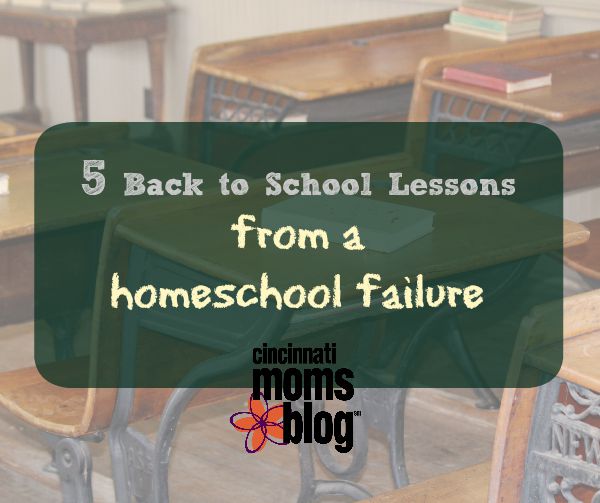 Don’t get me wrong. We had a whole lot of success in our first year of homeschooling. The kids learned a ton, delved deeply into subjects that interest them, figured out how to prioritize, and took responsibility for how they used their time. We grew closer as a family, and I got to know them even more than before—their learning styles, their strengths and weakness, their passions, their individual varieties of humor. We went to cultural events of all sorts, explored our city on weekly field trips, met new friends, spent entire days reading books, and spent entire days outside when the weather called for it.
Don’t get me wrong. We had a whole lot of success in our first year of homeschooling. The kids learned a ton, delved deeply into subjects that interest them, figured out how to prioritize, and took responsibility for how they used their time. We grew closer as a family, and I got to know them even more than before—their learning styles, their strengths and weakness, their passions, their individual varieties of humor. We went to cultural events of all sorts, explored our city on weekly field trips, met new friends, spent entire days reading books, and spent entire days outside when the weather called for it.
Why, then, do I feel like a failure?
My oldest is thinking about going back to public school this year.
I cannot express how sad this makes me.
He hasn’t made any official decision yet, even though school starts in mere days. I‘m trying to give him enough space and time to make his own choice, even though on the inside I am having a three-year-old style temper tantrum and a 41-year-old mom meltdown all at the same time. I love home schooling. I always assumed that at some point in the future, they would return to public school, but I am just not prepared to re-enter the rat race of it all yet.
If home schooling is so wonderful, why does he want to go back to school then? Sigh. It’s complicated. He’s a quiet, shy kid, and being in school means he’s around a bunch of kids his own age without any effort on his part. (And half of them are girls. This is probably a bigger draw than he or I are willing to admit. He is a twelve-year-old boy, after all.) Still, I can see that he’s genuinely torn, as even with the allure of easier school work (a lot less personal responsibility) and hundreds of potential friends, he sees the cost—loss of freedom, no flexibility in our schedule, and a less personalized curriculum.
So, while I wait for my boy to decide, I am reflecting on what I learned from our precious year together. I may have learned more than they did. I haven’t done algebra in decades, but I’m pretty up to speed now. I didn’t remember a bit of U.S. history from high school, but it’s all starting to come back to me. Science was never my thing, but I will be teaching a short course on botany to some of the little kids in our co-op this year. Most importantly, there are some things that I learned from our year without school that I intend to keep doing even if we end up making it a part of our lives again.
- Family First. I tend to think most parents consider family their top priority, but for us, a seven hour school day followed by PTA meetings, committee meetings, meet the teacher night, conference night, family game night, awards ceremonies, skating parties, band concerts, and much, much more, made us over-scheduled and distracted from the things we value as a family. Dinner with everyone around the table became the exception instead of the rule. A mad dash to finish homework, get to soccer practice, shove in a peanut butter sandwich, practice trombone/sight words/spelling words/multiplication facts, take a shower, and get to bed at a decent hour became the norm. Trying to figure out when to squeeze in a visit to Grandma between it all seemed like more of a hassle than a necessity. Instead, I will remember that our family’s values are more important than school. If that means homework doesn’t get done, then it doesn’t. If that means we don’t get perfect attendance, then we just don’t. If that means I have to have a discussion with a teacher or principal, then I will. Yes, really.
- A Certificate is Not the Goal. Yeah….that whole perfect attendance thing reminds me that in school, certificates are a big deal. From perfect attendance to most improved to most words read to spirit award all the way to the big certificate, The Diploma, school convinced my kids that if you have a big ol’ pile of certificates on your way out the door, then you are a success. That’s a contest, not an education. Without a teacher’s lesson plan or a district curriculum to guide us, home schooling taught us to define a goal, separate from a test or award—what we wanted to learn, find out, or accomplish. We will strive to continue talking less about the certificates, awards, or test scores, and more about our personal goals, what we want to accomplish, and the lessons we learn.
- No more PTA. I know there are some parents who have a passion for the PTA or otherwise volunteering at school. I am grateful for them. I am not one of them. I know that studies show kids do better in school when their parents are involved, which is why I volunteered weekly in my kids’ classrooms, participated in the PTA, and helped at school events. What I’ve realized is that my kids were not benefiting from me being so involved at school. My kids often had to spend afternoons running errands with me because I had volunteered that day instead of going to the grocery or bank while they were at school. Or I had to find a sitter to stay with them while I attended a meeting in the evening. I can be a better mom by not volunteering. It’s not as if they don’t know we value education. It’s what we do, school or no school.
- My children’s education is my responsibility. Always. Of course, I knew this before we homeschooled, but I often got frustrated—sometimes downright angry, with the gaps in their skills and knowledge or how much time was wasted at school with fundraisers, pep rallies, discipline, and other craziness. But I’ve realized that no matter where my children go to school, there will be gaps in their education. Teachers have a huge, difficult job, and most do it with excellence. In addition to teaching, they must manage the behavior of 25-30 kids, teach behavior and social skills, organize paperwork, create systems for homework, bathroom breaks, and tracking student progress, plan lessons, attend staff meetings, monitor recess, lunch, or bus loading, and a thousand other things. I cannot expect them to meet every educational need of my children. Whether my role as my children’s educator is a full-time day job or a part-time evening position, it’s still important no matter where they attend school.
- We always have a choice. Before we became part of the homeschooling community, I don’t know that I realized what vast and varied educational opportunities exist for us here in Cincinnati. In addition to public schools, many with open enrollment options, there are private and parochial schools, charter schools, online schools, private and group tutoring, teleconferencing classes, educational co-operatives, and endless ways to home school. There is no one perfect way to educate a child, but there are so many ways to do it well.
It has been a privilege to teach my children for the past year. Even if one of them heads back to school this fall, I will always remember this year as one filled with fun, discovery, learning, exploration, bonding, and love. Even if school becomes a part of our life again, I have more clarity and confidence in our values and the things necessary for our household to run smoothly, our relationships to stay positive, and our spirits to remain healthy. We learned way more than the three R’s this year, and we will not forget it.












